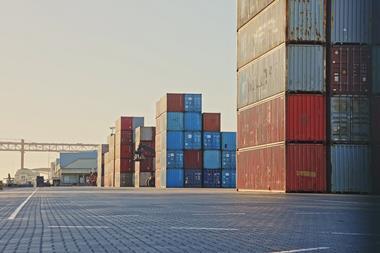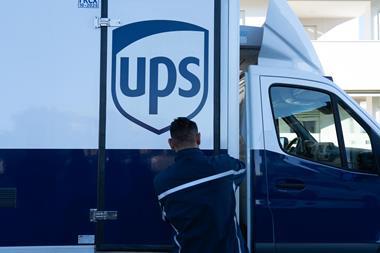
Air cargo executives are expecting air cargo demand in 2024 to be flat or at best slightly above this year's levels, according to speakers at the Tiaca Executive Summit event.
Adopting probably the most positive outlook for air cargo demand in 2024 at the event was data provider WorldACD's director of product development and customer support, Rogier Blocq.
Blocq said that WorldACD had studied quarterly figures between 2010 and 2019 and in the first and second quarter, year-on-year increases tended to be an improvement on the final quarter of the year.
And the latest projections from WorldACD show that demand is expected to increase by 1% in the final quarter of the year (-1% October, +1% in November and +2% in December).
With this trend in mind, WorldACD expects demand to increase by 2% year on year in the first quarter and by 3% in the second quarter.
"For 2024 we are to some extent optimistic because we do see that demand is picking up," he said.
However, he cautioned that demand for 2024 was hard to predict given all the uncertainties there are in the market at the moment.
Meanwhile, during a panel discussion, Tiaca director general Glyn Hughes asked speakers whether they expected next year to be the same, better or worse than 2023.
Turkish Airlines chief cargo officer Turhan Özen said he was optimistic that demand would pick up by the fourth quarter of next year at the latest.
"Of course, there are geopolitical risks, wars or threat of wars, and any kind of conflict can jeopardize this," he said.
"But if politically things do not get worse - and hopefully better - it is only a matter of time until the European Central Bank and the US Federal Reserve lose their worries about inflation and start to focus on growth."
He added: "When these two areas start to bounce back, air cargo will be the first to react very positively and I expect this to be no later than September next year."
Meanwhile, Challenge Group chief executive Yossi Shoukroun was expecting the geopolitical situation to be a drag on demand expectations.
"2024, in terms of the global economy and the geopolitical situation, unfortunately, will not change and hopefully will not escalate, but the signs are not that good," he said.
This could in turn put pressure on cargo capacity, he added, as passenger services are reduced in response to lower demand from travellers due to the instability and also higher fuel prices.
Passenger demand could also be affected by extreme weather conditions, he added. Both of these developments would benefit freighter operators, he explained, as they pick up on the lack of bellyhold space.
Marco Tafuro, airfreight director, UPS Europe Region, said UPS was positive for growth towards the end of next year but added that the first half would be a continuation of this year's performance.
And Brussels Airport Company chief cargo & real estate officer Geert Aerts said that the geopolitical situation, most recently in the Middle East, had pushed air cargo's recovery back by a year.
He expected demand in 2024 to be flat on this year, or at best a little bit up, but added that there would be a better picture of next year at the end of quarter four.
"Maybe we can recalculate at the end of the year, but for now, keep it neutral and push expectations of a recovery one year down the road," Aerts said.
Hong Kong handler Hactl's chief executive, Wilson Kwong, pointed out that the airport would benefit from the full opening of the three runway system next year.
The airport added a third runway in 2023 but only two have been in use while upgrades are carried to one of the existing runways.
"I think next year will see a lot of volatility judging from all the events that are happening but I think that next year we will see a small growth compared with this year," said Kwong.















